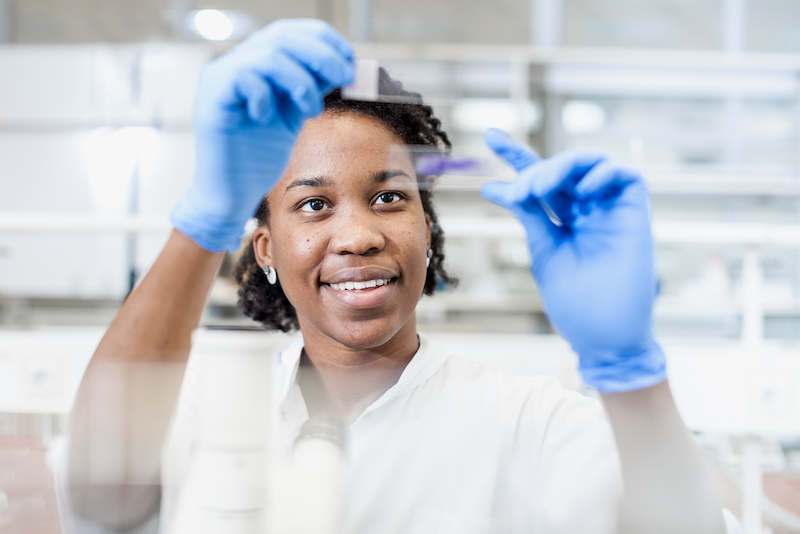We recently hosted a special book club edition of our “Ask the Expert” webinar series with Dr. Chadi Nabhan. In this discussion, board-certified hematologist, medical oncologist, and author of The Cancer Journey, Dr. Nabhan offers practical tools to help patients navigate all stages of their diagnosis. Watch the full webinar below.
Keep reading for some of the highlights and questions surrounding a metastatic cancer diagnosis transcribed from the discussion.
The following questions and responses have been lightly edited for grammatical purposes.
Q: How do you recommend metastatic patients balance hope with realistic expectations throughout their care?
A: We must maintain hope, but it has to be realistic hope. The best way to do that is to always be honest and to always communicate. I think the biggest problem occurs on both sides.
Physicians always want to try to do better. They really want to help as much as possible, and if we’re able to get rid of all cancers once and for all, we would. In that spirit, occasionally we over-promise, or we exaggerate a bit the possibility of this cancer never coming back. I’m guilty as charged. I have done that in the hope that this is going to position the patient more powerfully. But then you end up being disappointed if the cancer comes back.
It’s also on the other side. Patients want to maintain hope and want to be able to do better and exceed expectations as well. They want to put everything behind them, so they can go on with their lives, for themselves and their loved ones.
Evidence-based guidance powered by NCCN Guidelines®
Personalized treatment plans shaped by the latest oncology standards—tailored to your diagnosis.
Get started
View your personalized treatment plan in the Outcomes4Me app
Use your diagnosis to unlock personalized NCCN Guidelines®-aligned recommendations.
Continue in app
The best way to approach this is always communication. I have an entire chapter in the book on communication. In that chapter, I opened up and explained situations where I felt I probably did not communicate as well as I should have, and situations where I felt maybe the patients did not hear me very well, but I think at the end of the day we have to communicate. We sometimes assume that patients cannot handle it, so we tend to sugarcoat certain things and try to exaggerate the optimism.
I would say, being empathetic, sympathetic, sitting down, talking, and giving the patient the time to explain things is key. You can’t really have certain conversations in five to ten minutes. Sometimes you have to sit down and just have a long conversation about certain things.
Patients will always 100% want to know the truth. Everybody who is watching this or listening to this would say, “I’d rather know the truth as opposed to being promised certain things just to maintain hope and optimism.” So communicate, be truthful, and present the facts. Have a fact-based discussion and explain why A versus why B and people will understand you.
Q: What role do precision medicine and genomic testing play in helping patients with metastatic cancer?
A: We’re moving rapidly into really testing everybody with any type of cancer. It is happening more in patients with advanced cancer or metastatic cancer, where frankly, it is recommended to test the genetic, the genomics for every single patient with advanced disease.
A couple of things, to point out: when we say genomics, we’re not really implying that this is a hereditary type of disease, that it’s passed on from family to their offspring. There’s about 10% or so of these cancers that get passed on. What we’re saying with testing genomics is if we’re able to identify certain mutations or certain genomic aberrations in the tumor that might help guide therapy or selection of therapy. This is happening more often. It should happen, in my opinion, in all cancers except the very early-stage ones.
What we are challenged with is that sometimes we detect these mutations and these aberrations, but there are no treatments for these mutations that we detect. Sometimes we don’t detect anything because our testing is not as accurate as it should be.
So what you are seeing in the field right now is a lot of people are actually going ahead and using these genomics and these tests to develop drugs. If you know that there’s a specific mutation that exists in these tumors and it’s very prevalent, maybe we can put our heads together and develop a drug or drugs that target this particular mutation because we’re going to help a lot of patients. So there’s a lot of drug development that is taking place and occurring by identifying these mutations.
The world of precision medicine is here to stay and you’re going to see more tumors than ever being sequenced. We are looking at the mutations and looking at everything that’s going on because it’s going to help guide therapy.
If you find a mutation, there’s a treatment for it, then actually, that’s good. But that doesn’t always happen. It’s not always the case.
Q: How can metastatic patients continue advocating for themselves? How should they proceed if they ask for additional biomarker testing and their oncologist says it isn’t necessary?
A: Number one is to check to see what tests you’ve had done because there could be a lot of tests happening. It is fair to say in certain tumors, the tumor has progressed because there’s a new mutation, or there’s some new finding and things of that nature.
I would be interested in knowing why the physician is saying, “This is not necessary,” but let’s have a conversation about it. Educate me. Maybe they have a point, so let’s try to understand that. It is possible, for example, that the physician may be saying it’s not necessary because it requires an additional biopsy. This new biopsy may be too risky for me. Maybe it’s in a location that I cannot really access with a needle and a tissue. Maybe that’s why.
But now we have liquid biopsies. You can actually do a blood test and through the blood test, you can detect these mutations. So I would be interested in knowing why. There may be an actual logical medical reason, but I am a proponent of checking for these mutations with testing.
To view the entirety of Dr. Nabhan’s Ask the Expert webinar, click here.
*When you purchase from a link on this page, we may receive a small affiliate commission.
Personalized support for real care decisions
Understand your diagnosis, explore clinical trials, and track symptoms--all in one place.
Get started
Compare treatments, prepare for appointments, and track side effects—all in the app
Built for your diagnosis, Outcomes4Me gives you the tools to make confident, informed decisions—right when you need them.
Continue in app






